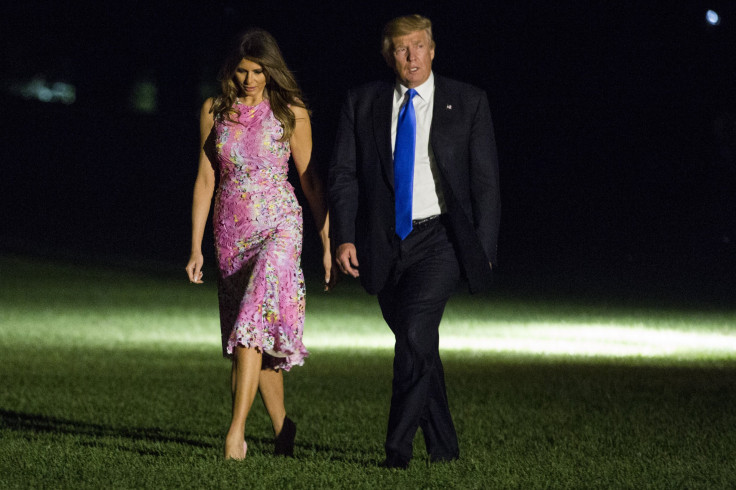What Is Goldwater Rule? Psychiatrists Cannot Diagnose Trump's Mental Health

American Psychoanalytic Association (APsaA) told its members in an email Tuesday that they could comment publicly on the mental state of public figures, including the president.
However, in a separate press release, the leading psychiatry group clarified the email did not "encourage members to defy the 'Goldwater Rule,' which is a part of the ethics code of a different mental health organization."
"Some of APsaA’s members are psychiatrists, and some of these psychiatrists are members of the APsaA and other professional organizations. Any member of a professional organization is responsible for following the ethics code of every organization they belong to. APsaA has not made any statement that would intrude in the internal rules and governance of another organization," the statement read.
Read: How Did Twitter React To Trump Calling Obamacare ‘17-Year-Old’?
The Goldwater Rule derived its name from an incident during the 1964 presidential election. During that time, Fact magazine published a survey in which 12,356 psychiatrists were asked whether candidate Sen. Barry Goldwater (R-Arizona), the GOP nominee, was psychologically fit to be president.
A total of 2,417 psychiatrists responded, with 1,189 saying that Goldwater was unfit to become the president, according to the website of APsaA.
There were legitimate reasons for people to make such claims as Goldwater had said the U.S. should use nuclear weapons in Vietnam to "defoliate forests and destroy bridges, roads, and railroad lines bringing supplies from communist China."
Goldwater successfully sued the magazine for libel, following which APsaA instituted the Goldwater Rule, which clearly states it's unethical for psychiatrists to give an opinion on a public figure's mental state if they hadn't interviewed him or her in person, a report said.
The impetus for APsaA's mail to its employees saying that they can comment on President Donald Trump's mental health, was the "belief in the value of psychoanalytic knowledge in explaining human behavior," Scientific American reported, citing psychoanalytic association past president Dr Prudence Gourguechon.
He added: "We don’t want to prohibit our members from using their knowledge responsibly."
However, the email is in no way an indicator that the Goldwater Rule has been lifted. The group's director of public affairs, Wylie Tene, told NPR that there has been no change to the association's policy. Its members "have always been free to comment on public figures, but have been cautioned against diagnosing," Tene said.
Read: Hot Mic Catches Two Senators Commenting On Trump's Mental Health
The Goldwater Rule has become controversial in the Trump era, especially with the president posting a series of angry tweets, which trigger speculation on his mental health. Trump's statements are often considered as "nonsensical" or "needlessly inflammatory," a GQ.com report said.
Gourguechon cited the example of Trump's string of tweets about television host Mika Brzezinski, calling her “low I.Q.,” and claiming she was “bleeding badly from a face-lift” during a party at Trump’s Florida resort on New Year’s Eve, the Atlantic reported.
“I personally am comfortable looking at observable behavior and saying, ‘That was an impulsive act.’ That doesn’t trouble me morally. I think it’s kind of silly to not be able to say. I know that I can confidently say, and I did, that the tweet about Mika Brzezinski showed a lack of discipline and self-control," Gourguechon said.
© Copyright IBTimes 2025. All rights reserved.






















